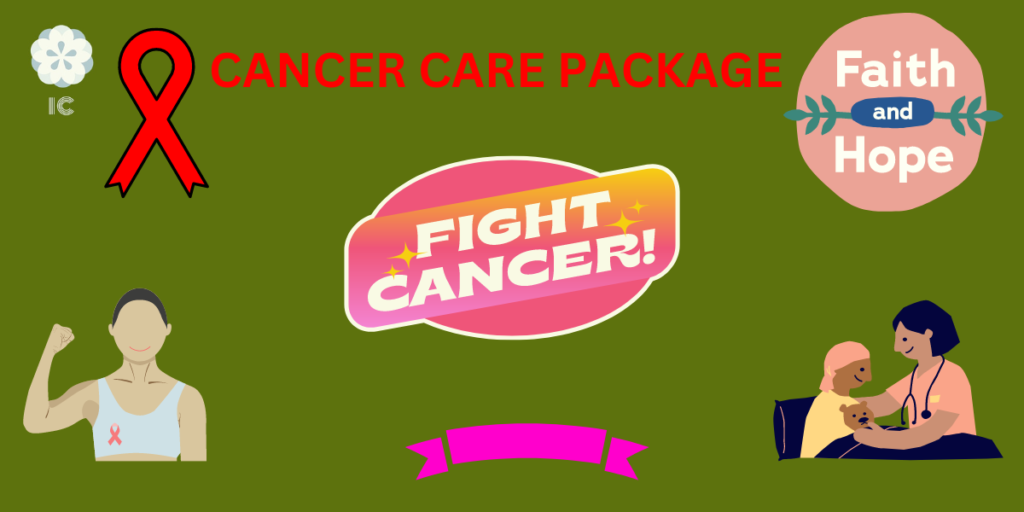Cancer Care Package

Cancer care is a multifaceted approach encompassing prevention, diagnosis, treatment, and supportive care aimed at addressing the complexities of cancer and improving patient outcomes. With cancer being one of the leading causes of death globally, advancements in research, technology, and medical practices have revolutionized the landscape of cancer care, offering hope to millions affected by this devastating disease.
Prevention plays a crucial role in cancer care, emphasizing lifestyle modifications, vaccination programs, and early detection strategies to mitigate risk factors and reduce the incidence of cancer. Public health initiatives promoting tobacco cessation, healthy diets, regular exercise, and sun protection contribute significantly to cancer prevention efforts, empowering individuals to adopt proactive measures to safeguard their health.
Early detection and diagnosis are pivotal in improving cancer prognosis and facilitating timely interventions. Screening programs for various cancers, such as mammography for breast cancer and colonoscopy for colorectal cancer, enable the detection of malignancies at earlier, more treatable stages. Additionally, advancements in diagnostic imaging, biomarker testing, and genetic profiling have enhanced precision and accuracy in cancer diagnosis, enabling tailored treatment strategies based on individual tumor characteristics.
Treatment modalities in cancer care are diverse, ranging from surgery and radiation therapy to chemotherapy, immunotherapy, targeted therapy, and emerging modalities like precision medicine and gene therapy. The selection of treatment depends on factors such as cancer type, stage, molecular profile, and patient preferences, with the goal of achieving optimal outcomes while minimizing side effects and preserving quality of life.
Supportive care plays a vital role in alleviating the physical, emotional, and psychosocial burden of cancer treatment on patients and their families. Palliative care and symptom management interventions focus on improving symptom control, pain management, and enhancing overall well-being throughout the cancer journey. Additionally, psychosocial support services, including counseling, support groups, and survivorship programs, offer invaluable resources to address the emotional and social challenges associated with cancer diagnosis and treatment.
In conclusion, cancer care embodies a comprehensive approach encompassing prevention, early detection, personalized treatment, and supportive care interventions aimed at combating cancer and improving patient outcomes. Through collaborative efforts across medical disciplines, research institutions, advocacy groups, and healthcare systems, strides continue to be made in advancing cancer care, offering hope and healing to those affected by this complex disease.
